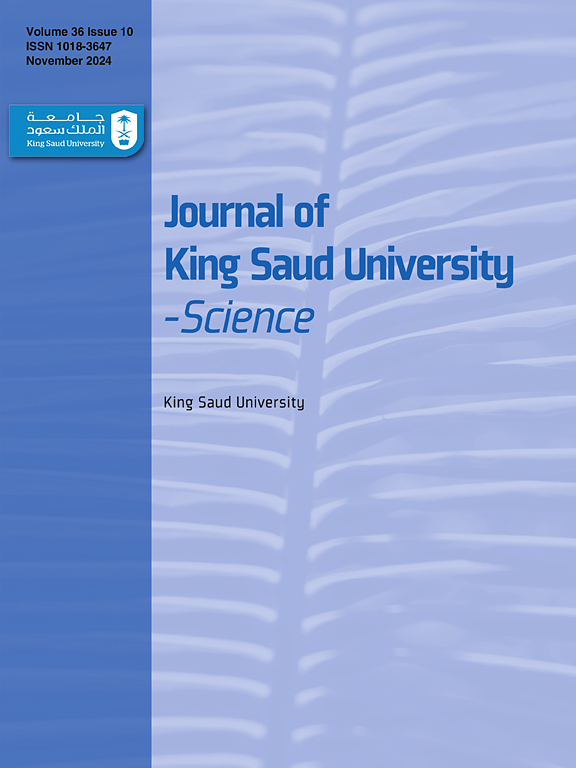监测因 COVID 后并发症而恶化的慢性肾病的快速诊断方法
IF 3.6
3区 综合性期刊
Q1 MULTIDISCIPLINARY SCIENCES
引用次数: 0
摘要
慢性肾脏病(CKD)的发病率正在上升,影响着全球超过 10% 的人口。此外,与 COVID-19 感染相关的亚临床炎症会导致肾功能逐渐下降,从而引发慢性肾病。对早期慢性肾脏病患者进行早期干预可延缓或避免发展为终末期并发症。人们普遍认为,血清胱抑素 C 是 CKD 可靠的早期指标。尿胱抑素 C 会随着肾功能衰竭的进展而增加。因此,早期检测可降低与 CKD 相关的发病率和死亡率。这项研究包括设计一个用于快速检测 CKD 的蛋白质电子平台。在这里,我们开发了一种生物传感器,它对胱抑素 C 具有高度特异性,对其他尿液生物标志物的反应微乎其微。该生物传感器的灵敏度为 50889.6 µA cm-2 mg-1,样本中胱抑素 C 的检测限为 26 ng mL-1。通过测量在 4 °C 下储存一个月后差分脉冲伏安电流的变化,研究了生物传感器的稳定性。结果表明,该生物传感器在 4 °C下储存 12 个月后仍保持稳定,初步峰值电流(Ip)值的损失率约为 10%。因此,所制造的蛋白电子生物传感器展示了一种用于慢性肾脏病护理点诊断(POCD)的分析性简便方法。所开发的 POCD 既经济又熟练,将有助于对非住院病人进行 CKD 管理。本文章由计算机程序翻译,如有差异,请以英文原文为准。
Rapid diagnostics for monitoring chronic kidney disease aggravated as a post COVID complication
The prevalence of chronic kidney disease (CKD) is increasing, affecting more than 10 % of the global population. In addition, subclinical inflammation associated with COVID-19 infection leads to a progressive decline in kidney function, resulting in chronic kidney disease. Early intervention in candidates with early-stage CKD may delay, or avert, progression to end-stage complications. It is widely accepted that serum Cystatin C is a reliable and early indicator of CKD. Urinary Cystatin C tends to increase with the progression of kidney malfunctioning. Thus, early detection can lower the morbidity and mortality associated with CKD. This study includes the design of a proteotronic platform for the rapid detection of CKD. Here, we have developed a biosensor that is highly specific to Cystatin C and shows a negligible response to other urinary biomarkers. The sensitivity of the biosensor was 50889.6 µA cm−2 mg−1 and the limit of detection for Cystatin C in the sample was calculated as 26 ng mL−1. The stability of the biosensor was studied by measuring the change inthe differential pulse voltammetric current at every month of storage at 4 °C. The biosensor was established to be stable for 12 months, with approximately 10 % loss in the preliminary peak current (Ip) value with storage at 4 °C. Thus, the fabricated proteotronic biosensor exhibited an analytical yet simple approach for point of care diagnostics (POCD) of CKD. The developed POCD is economical and proficient, and will enable CKD management in non-hospitalized patients.
求助全文
通过发布文献求助,成功后即可免费获取论文全文。
去求助
来源期刊

Journal of King Saud University - Science
Multidisciplinary-Multidisciplinary
CiteScore
7.20
自引率
2.60%
发文量
642
审稿时长
49 days
期刊介绍:
Journal of King Saud University – Science is an official refereed publication of King Saud University and the publishing services is provided by Elsevier. It publishes peer-reviewed research articles in the fields of physics, astronomy, mathematics, statistics, chemistry, biochemistry, earth sciences, life and environmental sciences on the basis of scientific originality and interdisciplinary interest. It is devoted primarily to research papers but short communications, reviews and book reviews are also included. The editorial board and associated editors, composed of prominent scientists from around the world, are representative of the disciplines covered by the journal.
 求助内容:
求助内容: 应助结果提醒方式:
应助结果提醒方式:


